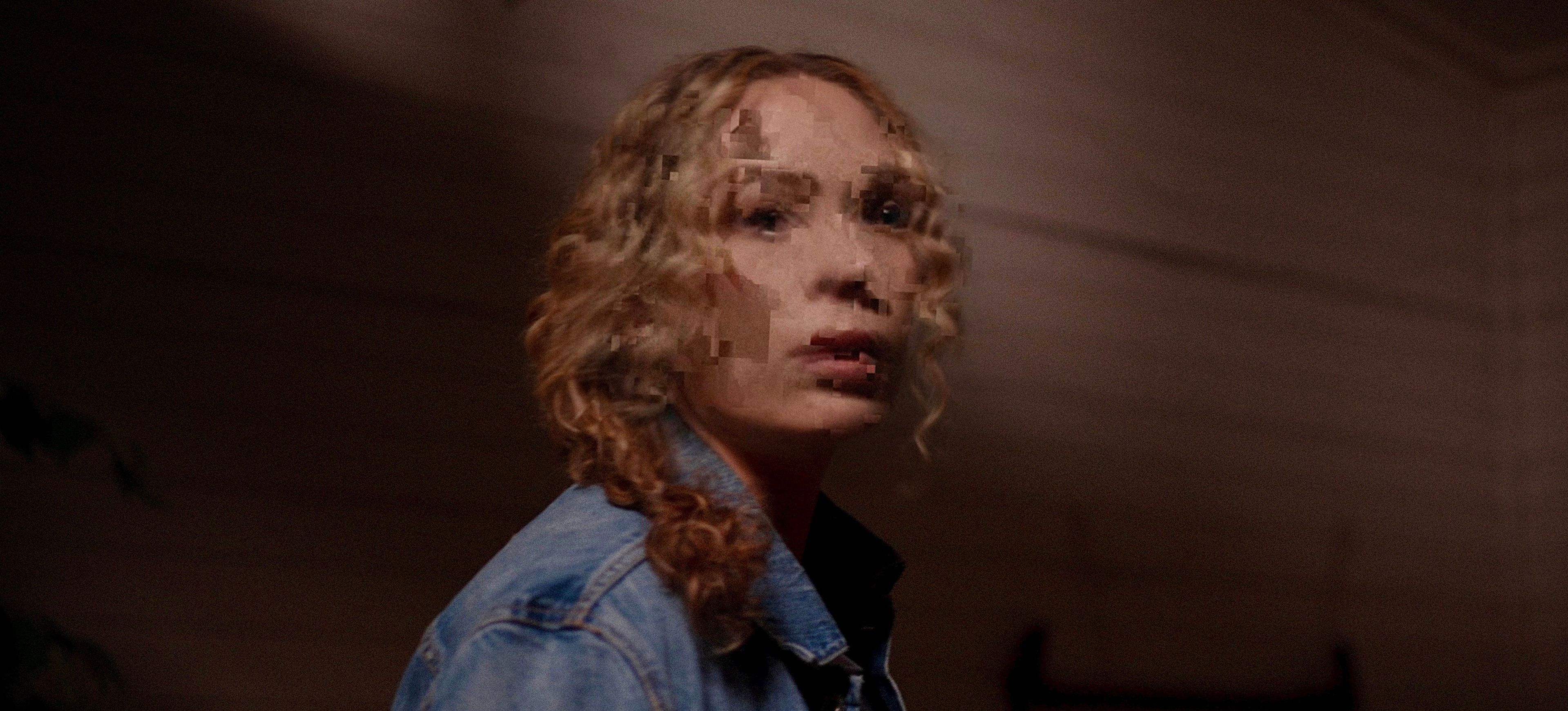At a certain point in Celine Song‘s sophomore feature “Materialists,” her follow-up to her much-loved “Past Lives,” I started to fixate on something a little strange: the Manhattan office in which our lead Lucy (Dakota Johnson) spends her days trying to arrange enduring romantic matches amongst the NYC elite. At first glance, the crowded and colorful office seems luxe; it’s lined with desks and filled with eager matchmakers like Lucy, bubbling with feminine energy and joy. When a match goes really well — i.e. when the couple gets engaged, the ballyhooed happy ending of all romances, naturally — a bar cart is rolled out and all the young matchmakers gather around each other and cheer for their good fortune, and for the seeming success of love itself. They’ve done it! Love wins! The fees they collect for their services don’t hurt, either.
Yet, the more time we spend in Lucy’s office, the cheaper, the sadder, the darker it looks. Those desks? They look as if they will collapse at any minute, smushed into each other as if we were at some no-nonsense nail salon, no room to breathe, no space to think. The bar cart? It’s wobbly. When it all gets too much, even Lucy heads straight to the fire escape to get some air. It is, quite simply, not at all what it looks like at first blush.
Neither is “Materialists.”
You’d be forgiven for taking the marketing bait on this one (even we did!), because while Song’s second film may look, on the surface, like a glossy rom-com throwback about a beautiful woman (Johnson) split between two handsome men (Pedro Pascal and Chris Evans) as they wine and dine around a glittering Manhattan, “Materialists” is not a romantic comedy. It’s not even a comedy, and your read on how romantic it is will be entirely fueled by how willing you are to grapple with a subject that rom-coms seldom broach: the limits of what love can do for someone.
Cynical, sad, increasingly fucked up, and often gloriously mean, Song has turned the genre inside out to show us how shallow these stories can be. In short, imagine if the decree that a film centers on “the love you could only find at the movies” wasn’t a compliment, but a stern provocation. And while Song is not always successful at this challenge, the result is compelling, dark, and worthy of considerable discussion.

Did you really think Celine Song, already one of our best chroniclers of what love actually is, would make a shiny little rom-com about good, happy people? Please.
It opens, hilariously enough, with a vignette centered on the romantic rituals of cavepeople. Even they, Song argues, engaged in courtship activities, weighing the merits of their paramours against the needs of the real world. And when two of her cavepeople make it official, it’s not so much a happy occasion as the inciting incident for several millennia of good (and bad) unions.
For Lucy, love is a transaction. Her clients are goods. The dating scene? It’s a market. No wonder she’s been so successful at matchmaking (Johnson’s naturally cool reserve works wonders for the role), her work steeped in running the numbers and comparing pros and cons, assessing potential romance like one might consider a business deal. Her various clients are not always of the same mind, however, and as Song pushes Johnson through increasingly awful, impersonal, and darkly funny meetings (women who only want tall men, men who only want younger women, and worse), it’s easy to see why Lucy has become so clinical.
A flashback, inspired by running into her ex John (Evans, working in the kind of downbeat register we haven’t seen from him in years) at the wedding of two of her clients, further illuminates things: John and Lucy first came to the city years ago, itching for success, and too poor to even afford not just a full evening out on the town, but the parking fees for a single stint in a parking garage. Sick to death of being poor, Lucy ended things with John. Years later, their love for each other is still apparent, but so is the financial divide between them: John has yet to make it as an actor and is instead cater-waiting at the wedding, Lucy is there as a cherished guest.
Also on offer at the wedding: the groom’s handsome brother Harry (an appealing Pascal), the kind of “unicorn” Lucy would love to fix up with some of her very eager female clients. But Harry is taken with Lucy, even when she’s crystal clear: the number one thing she is looking for in a potential husband is that he’s rich. The number two thing is that he’s rich. She is, after all, a materialist. Fortunately, Harry is rich! And, as we come to learn, he’s also very much of the same mind of Lucy about what romance is. A transaction. A deal. A merger.

As Harry and Lucy swan about the city on increasingly luxurious dates, John lingers at the edge of Lucy’s mind. What if love really was about love? Not money or safety or incredibly nice penthouses (the first night they spend together at Harry’s, Lucy appears to more revved up by the swanky spread than Harry’s furious kisses)? Well, Lucy sure as hell ain’t the person to interrogate that.
Until she is. As Lucy — analytic, cold, and totally aware of her emotional deficiencies — attempts to juggle a most unexpected internal war, something happens that even she could not predict or prevent. For all her planning, for all her precision, for all her “let’s take the emotion out of romance and get you married!” gusto, Lucy simply can’t control people and what they will do. That this horrific upheaval comes care of Lucy’s work is the real kicker. If her trusted professional methods can fail so terribly, what does that say about the way she conducts her personal life?
That destabilization is enough to push Lucy into new spaces, both expected and not. Who will she choose? John, who might not have a pot to piss in (and, even if he did, he’d have to share it with his many roommates), but sees Lucy as she is and still wants to be with her? Harry, who fully understands how love should look and move, and only uses that as a shield to his real self? Talk about bad options.
But while Song is eager to engage with these ideas — with the very nature of love itself, no small feat — even “Materialists” can’t escape the pull of wrapping things up in a tidy bow full of big reveals and bigger proclamations. Or is that all part of a deeper trick, a wilder swing? Love itself may remain a mystery, but the way “Materialists” feels about it is not. Just don’t fall for the shiny package.
Grade: B
A24 will release “Materialists” in theaters on Friday, June 13.
Want to stay up to date on IndieWire’s film reviews and critical thoughts? Subscribe here to our newly launched newsletter, In Review by David Ehrlich, in which our Chief Film Critic and Head Reviews Editor rounds up the best new reviews and streaming picks along with some exclusive musings — all only available to subscribers.



